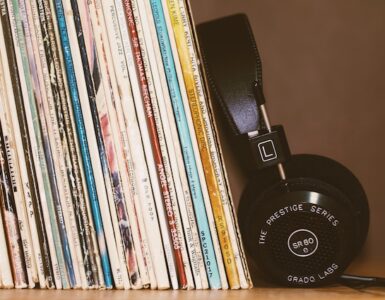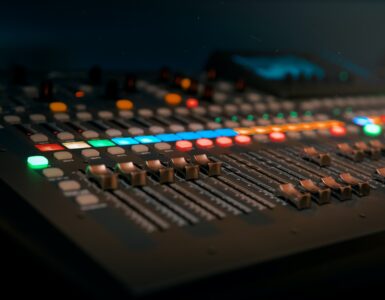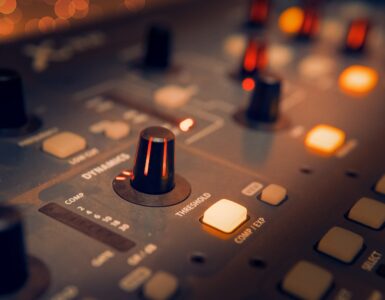To begin with, when it comes to songwriting and creating music or anything else in general, there are two types of people: those who are naturally talented and creative, and those who can achieve great results in creating music through hard work, perseverance, and effort. The former doesn’t even need to know how to play or sing well. They may know absolutely nothing about the theory of music, but from their pen comes out wonderful songs. The latter needs a lot of time and effort to develop these skills, a considerable amount of knowledge, and playing experience to surpass the former. But, it is quite realistic!

I’ll start by telling you to believe in yourself. Writing music can be compared to running a hundred-meter race. Imagine you have a friend who is naturally a fast runner. He has excellent anthropometric data and is well-built. But, he practically does not train, because he thinks that he is good enough. But you go out to the stadium every day, you work on your running technique, you squat with the barbell, you do a lot of different exercises and work on your speed. Also, a good coach works with you, who motivates you and tells you what you need to improve. And after a while, you start running faster than your friend. I hope you get the hint.
But, unfortunately, this comparison is still not quite right. Music cannot be measured by any numbers, it can only be felt. More precisely, you can measure it, but it will only be a description of the music with the help of mathematics, but not the music itself. And therein lies the main problem of authorship – how do we learn to feel the music? Unfortunately, there is no one-size-fits-all approach, technique, or exercise for learning to feel the music. It has to be a whole set of measures that, over time, allow you to develop this skill. There’s nowhere without it. Only the ability to hear and feel the music within you will allow you to write a beautiful piece of music. It is similar to painting – it is impossible to pass on to another person the skill of feeling color harmony, he himself must learn to “see” it.
Reading from The Sheet
Remember a simple thing: music notation was invented at a time when mankind didn’t have even a hint of sound recording technology. For the great composers, all those hooks, dots, and stripes were the only way to capture the melody they had just invented and pass it on to the performers. Even 10 years ago this was still a problem, but now you can record music on your iPhone and then assemble something sane from the drafts. Nevertheless, knowledge of sheet music is also a very useful theoretical skill. Save it for later.
A Basic Kit
If you don’t own any musical instrument, but really want to pour out your soul in the form of ordered sounds, it will be enough to buy a laptop and a MIDI keyboard, and then decide on the program in which to work. If you’re dealing with Windows, try the simplest FL Studio ($100, free demo version). And on MacBooks, Garage Band is installed by default; it’s more than enough. M-Audio’s compact version. Connects via USB; two and a half octaves. The keyboard is necessary first of all for clarity. A skilled composer does not need it to work: someone with experience will be able to go into the editor and write music in complete silence, like an HTML programmer. But someone who wants to understand how everything works, and what makes what sounds, comes in handy as the tool with which children begin to learn music. Here is “C”, here is “G” – on the keys, everything is much more obvious than on the guitar with its peculiar logic.

Don’t Take It Too Seriously
The main mistake made by anyone who starts doing something just for the love of art is that such people soon start making a serious face and telling others that they are “indie” or “musicians. You’re not that – you’re just an inquisitive dilettante. Take all criticism into account and be humble about it – really, can you really expect rapid recognition if you heard a virtual piano playing under your hands for the first time just yesterday?
At the same time, you don’t have to give up on yourself if someone close to you says it’s “not your thing” and that you’re wasting your time in general. Studying music, even at home and very superficially, develops imagination and fantasy, plus, with the proper zeal you’ll have the opportunity to earn some money from it – because now everyone is shooting commercials and making games that need a sound design. Eventually, you’ll learn a skill you can share with your kids later.
That’s It!
Thus, to learn how to do something, you have to look at the work of those who can do it. Only reading books can teach you how to write them. By observing the masters of their craft, one can roughly understand the technology of creation. With music, the situation is similar. To begin with, you need to have an ear for music. Understand the musical literature, solfeggio. The most precise knowledge of the sheet music of both keys. And of course, the constant playing of works by different composers and genres. After five or six years of practice, there is a high probability of appearing to understand how a melody is constructed. This will be the first step in writing “something of your own.














